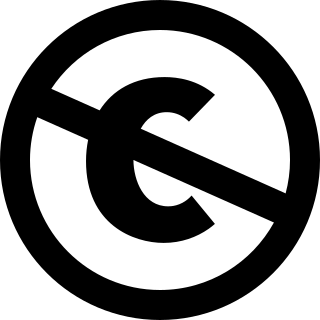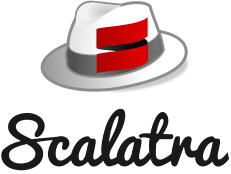Nagios is an event monitoring system. Nagios offers monitoring and alerting services for servers, switches, applications and services. It alerts users when things go wrong and alerts them a second time when the problem has been resolved.
This article outlines the general features commonly found in various Internet forum software packages. It highlights major features that the manager of a forum might want and should expect to be commonly available in different forum software. These comparisons do not include remotely hosted services which use their own proprietary software, rather than offering a package for download which webmasters can host by themselves.
The following tables compare general and technical information for many wiki software packages.

Git is a distributed version control system that tracks changes in any set of computer files, usually used for coordinating work among programmers who are collaboratively developing source code during software development.
A source-code-hosting facility is a file archive and web hosting facility for source code of software, documentation, web pages, and other works, accessible either publicly or privately. They are often used by open-source software projects and other multi-developer projects to maintain revision and version history, or version control. Many repositories provide a bug tracking system, and offer release management, mailing lists, and wiki-based project documentation. Software authors generally retain their copyright when software is posted to a code hosting facilities.

Mercurial is a distributed revision control tool for software developers. It is supported on Microsoft Windows, Linux, and other Unix-like systems, such as FreeBSD and macOS.
mySociety is a UK-based registered charity, previously named UK Citizens Online Democracy. It began as a UK-focused organisation with the aim of making online democracy tools for UK citizens. However, those tools were open source, so that the code could be redeployed in other countries.

Wireless network cards for computers require control software to make them function. This is a list of the status of some open-source drivers for 802.11 wireless network cards.

Public-domain software is software that has been placed in the public domain, in other words, software for which there is absolutely no ownership such as copyright, trademark, or patent. Software in the public domain can be modified, distributed, or sold even without any attribution by anyone; this is unlike the common case of software under exclusive copyright, where licenses grant limited usage rights.

The WTFPL is a permissive free software license. As a public domain like license, the WTFPL is essentially the same as dedication to the public domain. It allows redistribution and modification of the work under any terms. The name is an abbreviation of Do What The Fuck You Want To Public License.

WhatDoTheyKnow is a site by mySociety designed to help people in the United Kingdom make Freedom of Information requests. It publishes both the requests and the authorities’ responses online, with the aim of making information available to all, and of removing the need for multiple people to make the same requests. The site acts as a permanent public database archive of FOI requests made through it.

Rack is a modular interface between web servers and web applications developed in the Ruby programming language. With Rack, application programming interfaces (APIs) for web frameworks and middleware are wrapped into a single method call handling HTTP requests and responses.

Scalatra is a free and open source web application framework written in Scala. It is a port of the Sinatra framework written in Ruby. Scalatra is an alternative to the Lift, Play!, and Unfiltered frameworks.
GitHub has been the target of censorship from governments using methods ranging from local Internet service provider blocks, intermediary blocking using methods such as DNS hijacking and man-in-the-middle attacks, and denial-of-service attacks on GitHub's servers from countries including China, India, Iraq, Russia, and Turkey. In all of these cases, GitHub has been eventually unblocked after backlash from users and technology businesses or compliance from GitHub.

Redox is a Unix-like microkernel operating system written in the programming language Rust, which has a focus on safety, stability, and performance. Redox aims to be secure, usable, and free. Redox is inspired by prior kernels and operating systems, such as SeL4, MINIX, Plan 9, and BSD. It is free and open-source software distributed under an MIT License.

Searx is a free and open-source metasearch engine, available under the GNU Affero General Public License version 3, with the aim of protecting the privacy of its users. To this end, Searx does not share users' IP addresses or search history with the search engines from which it gathers results. Tracking cookies served by the search engines are blocked, preventing user-profiling-based results modification. By default, Searx queries are submitted via HTTP POST, to prevent users' query keywords from appearing in webserver logs. Searx was inspired by the Seeks project, though it does not implement Seeks' peer-to-peer user-sourced results ranking.

FragDenStaat is a Berlin and Brussels-based NGO run by the Open Knowledge Foundation Germany focused on the right to information. It operates an Internet platform to facilitate freedom of information requests to both German and EU public authorities. The technical platform is supplemented by issue-related campaigns, investigative journalism and strategic lawsuits, which are organized and operated by a project team and often in cooperation with other NGOs or news outlets.











